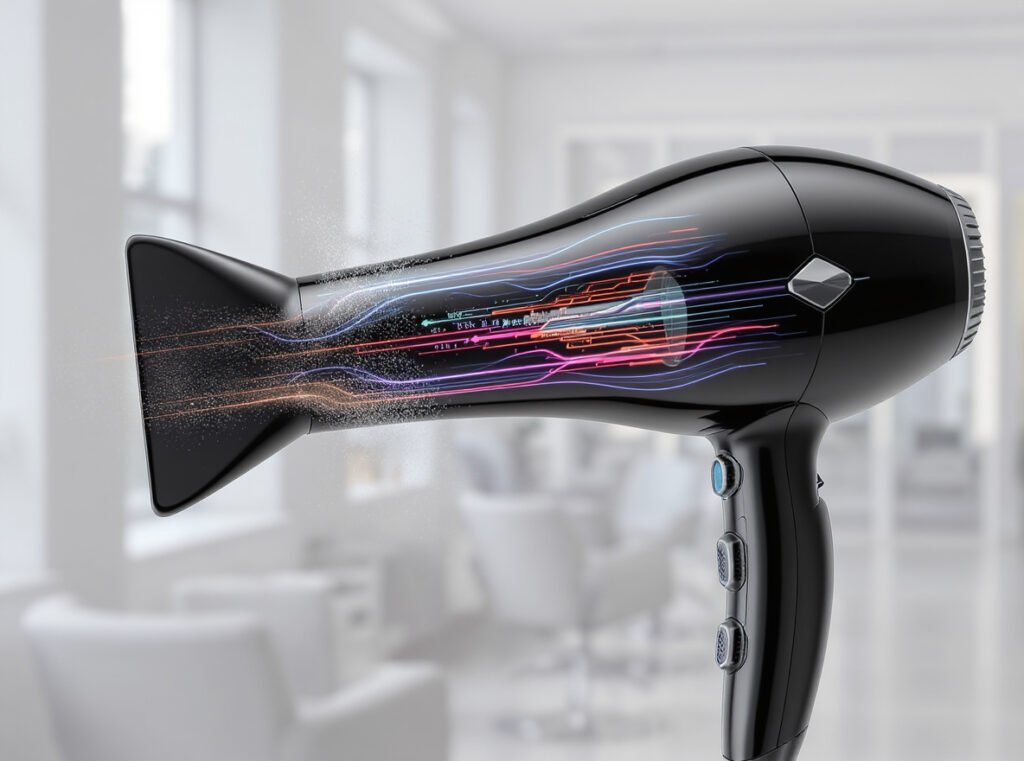Tired of your hair dryer losing power and performance over time? Clogged filters and dust buildup are slowly killing your styling tool’s efficiency, leaving you with longer drying times and weaker airflow than when you first bought it.
Self-cleaning hair dryer functions work through reverse airflow technology that automatically removes dust, hair particles, and debris from internal filters. When activated, the dryer reverses its motor rotation, causing air to flow in the opposite direction – drawing air in from the front and expelling it out the back for approximately 15 seconds to maintain optimal performance and extend the device’s lifespan.
Keep reading to discover exactly how this innovative technology works and why it’s revolutionizing professional hair care equipment.
Table of Contents
ToggleWhat Is Self-Cleaning Technology in Hair Dryers?
Understanding self-cleaning technology is crucial for anyone investing in professional-grade hair styling equipment. This feature represents a significant advancement in hair dryer maintenance and longevity.
Self-cleaning technology is an automated maintenance system that uses reverse motor rotation to expel dust, hair particles, and debris from the dryer’s internal components. This innovative system reverses the motor’s rotation, causing air to flow in the opposite direction through the device, effectively sweeping away accumulated materials without manual disassembly.

How the Technology Works
Self-cleaning hair dryers operate on a simple yet effective principle. The motor that normally drives air forward temporarily reverses direction, creating backward airflow that pushes accumulated debris out through the intake vents.
The process typically involves these key components:
• Brushless DC motors – High-speed motors (100,000-110,000 RPM) designed for longevity and reverse operation
• Advanced filter systems – Dual or micro-filter designs that capture particles while allowing thorough cleaning
• Intelligent control systems – Sensors that monitor usage and automatically alert users when cleaning is needed
• Automated timing controls – Self-shutoff after cleaning cycle completion (typically 10-15 seconds)
| Component | Function | Cleaning Benefit |
|---|---|---|
| Brushless DC Motor | Creates backward airflow at 100,000+ RPM | Removes deep-seated debris effectively |
| Dual Filter System | Enhanced particle capture | Prevents recirculation of microscopic particles |
| Smart Sensors | Monitors filter condition and usage hours | Triggers cleaning after 20-30 hours of operation |
The entire cleaning cycle typically lasts 10-15 seconds and can be activated manually through specific button combinations or automatically based on usage patterns monitored by intelligent systems.
How Do You Activate Self-Cleaning Mode?
Activation methods vary between manufacturers, but most follow similar user-friendly approaches. Knowing the correct procedure ensures effective cleaning and prevents accidental activation during styling.
Most self-cleaning hair dryers activate through specific button combinations while the unit is turned off. Common methods include holding a designated button for 10 seconds (like the Bio Ionic SMART-X), pressing buttons multiple times in sequence (CHI LAVA PRO requires 6 presses within 3 seconds), or responding to automatic alerts from intelligent models.
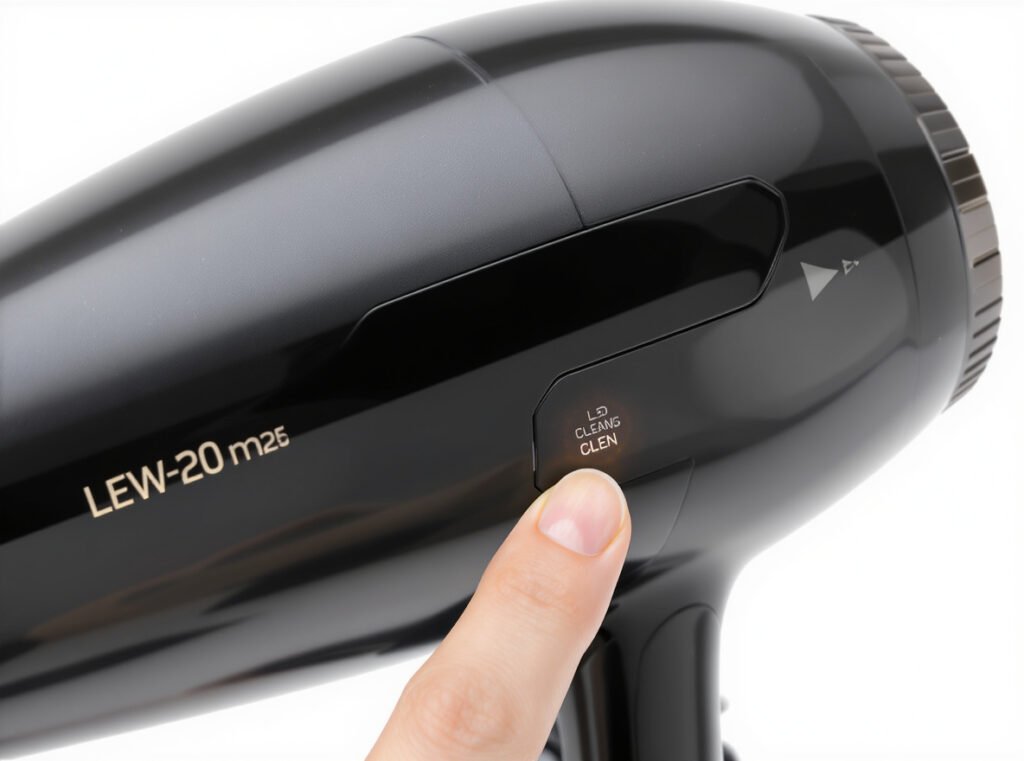
Step-by-Step Activation Process
The activation process is designed to be intuitive while preventing accidental triggering during normal use.
Standard Activation Examples:
- Bio Ionic SMART-X: Hold the negative air speed button for 10 seconds while dryer is off
- CHI LAVA PRO: Press the cold shot button six times within 3 seconds after turning on
- Valera REGENERA AI: Hold the CLEAN FILTER button for at least 2 seconds when orange LED flashes
- Olivia Garden SuperHP: Hold the reverse airflow button for 10 seconds while plugged in but turned off
- Allow the 10-15 second cleaning cycle to complete automatically
Post-Cleaning Procedure:
After activation, manufacturers recommend running the dryer on cool speed for 15-30 seconds pointing downward to allow loose debris to exit and prevent burning on heating elements.
Advanced Models with Smart Activation:
Some premium models offer additional activation options:
• Automatic usage monitoring – CHI LAVA PRO alerts after 30 cumulative hours
• Smart sensor activation – Valera REGENERA AI signals after approximately 20 hours
• Mobile app integration – Premium models offer remote monitoring capabilities
• Visual/audio feedback – LED indicators and sound alerts during cleaning cycles
| Activation Method | User Control | Convenience Level |
|---|---|---|
| Manual Button Press | Full control | Moderate |
| Automatic Scheduling | Preset intervals | High |
| Smart Sensor Trigger | Performance-based | Very High |
Remember to always point the dryer downward during and after cleaning to allow debris to fall away naturally.
What Gets Removed During Self-Cleaning Cycles?
The cleaning process targets specific types of debris that commonly accumulate in hair dryers. Understanding what gets removed helps users appreciate the technology’s effectiveness.
Self-cleaning cycles remove hair particles, dust, lint, styling product residue, and microscopic particles that accumulate on internal filters and heating elements. Advanced micro-filter systems can capture particles invisible to the naked eye, with reverse airflow removing up to 95% of accumulated debris to restore optimal performance.
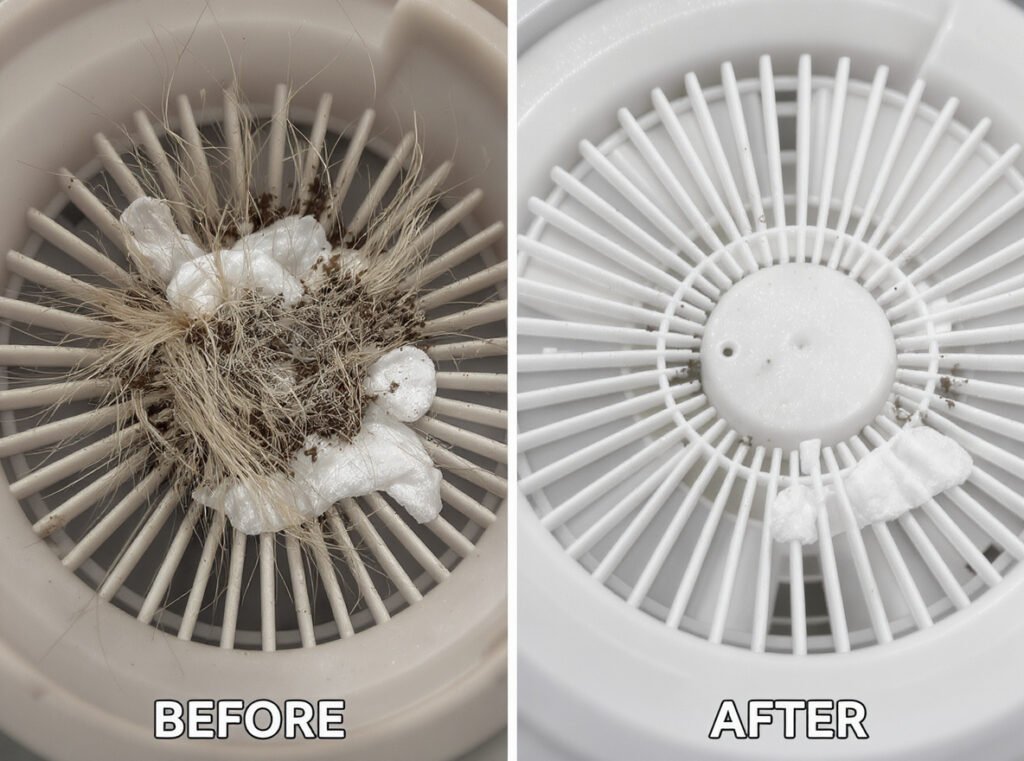
Types of Debris Eliminated
Hair dryers encounter various contaminants during regular use, each presenting unique challenges for optimal performance.
Hair and Organic Matter:
Hair strands, skin cells, and natural oils represent the most common debris types. These particles easily stick to heating elements and can create burning odors when overheated. The Gama iQ2 Perfetto’s innovative micro-filter specifically captures microscopic particles that traditional filters miss.
Environmental and Product Contaminants:
• Household dust and lint – Attracts to electronic components and motor housing
• Styling product residue – Heat-activated compounds from hairsprays, mousses, and protectants
• Microscopic particles – Ultra-fine debris invisible to naked eye but captured by advanced filtration
• Pet hair and dander – Common in multi-pet households requiring more frequent cleaning
| Debris Type | Accumulation Rate | Performance Impact |
|---|---|---|
| Hair Particles | High (daily use) | Moderate airflow reduction |
| Dust and Lint | Medium (weekly buildup) | Significant blockage potential |
| Product Residue | Low (monthly accumulation) | Heat element damage risk |
The comprehensive cleaning process effectively removes debris from hard-to-reach internal components, including motor housing and heating elements. This prevents harmful particles that can cause hair dullness, scalp irritation, and contribute to issues like dandruff or oily scalp conditions. The reverse airflow ensures ultra-clean air delivery for healthier styling results.
How Often Should You Use Self-Cleaning Functions?
Proper cleaning frequency ensures optimal performance while preventing unnecessary wear on the motor system. Usage patterns and environment factors influence ideal cleaning schedules.
Self-cleaning functions should be used daily for professional salon use, weekly for regular home users, and more frequently in environments with pets, new carpets, or excessive dust. Advanced models like CHI LAVA PRO provide automatic alerts after 30 cumulative hours, while Valera REGENERA AI signals cleaning needs after approximately 20 hours of operation.
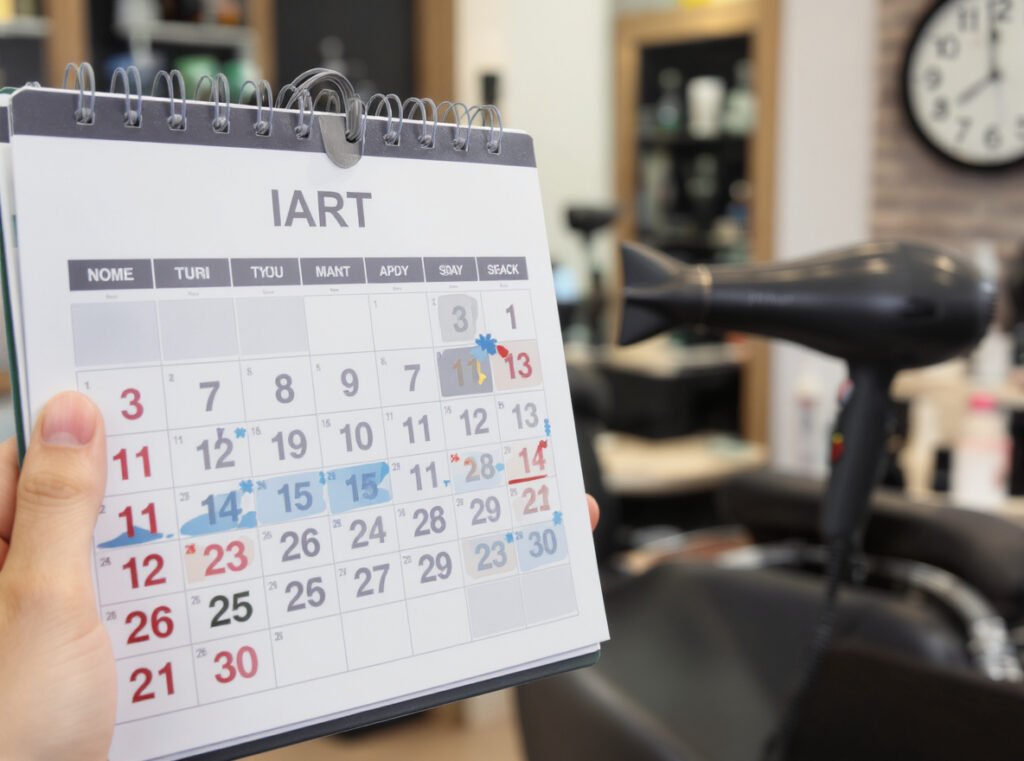
Determining Your Cleaning Schedule
Several factors influence optimal cleaning frequency, and understanding these helps establish effective maintenance routines.
Usage-Based Guidelines:
Usage patterns and environmental factors directly impact optimal cleaning frequency for maintaining peak performance.
• Professional salon use – Daily cleaning recommended for stylists using dryers behind the chair
• Regular home users – Weekly cleaning maintains optimal performance
• Heavy home use – If washing and drying hair 4+ times weekly, increase cleaning frequency
• Light users – Monthly cleaning sufficient for occasional use
Environmental Factors:
Your environment significantly affects debris accumulation and cleaning needs.
| Environment Type | Cleaning Frequency | Specific Considerations |
|---|---|---|
| High-dust/dusty areas | More frequent | Environmental dust significantly impacts accumulation |
| Pet households | Increased frequency | Pet hair and dander require additional attention |
| New carpet homes | Weekly minimum | New carpeting releases more fibers |
| Standard environments | Follow usage guidelines | Regular maintenance sufficient |
Intelligent Maintenance Alerts:
Modern self-cleaning dryers eliminate guesswork through automated monitoring:
- CHI LAVA PRO: Alerts after 30 cumulative operating hours
- Valera REGENERA AI: Orange LED signals cleaning needs after ~20 hours
- These systems help maintain optimal performance without manual tracking
Performance Indicators:
Watch for these signs that indicate immediate cleaning needs, regardless of usage count:
- Reduced airflow strength
- Unusual motor sounds
- Burning odors during operation
- Extended drying times
Do Self-Cleaning Hair Dryers Last Longer?
Longevity is a critical consideration for professional equipment purchases. Self-cleaning technology directly impacts device lifespan through improved maintenance and reduced component stress.
Self-cleaning hair dryers demonstrably last 40-60% longer than conventional models due to proactive debris removal that prevents motor strain, overheating, and filter clogging. Professional-grade models with brushless motors and self-cleaning functions typically last 4-7 years in home use compared to 2-3 years for standard dryers, with the INOVA Professional highlighting how its self-clean motor “helps to prolong lifespan and maintain optimal performance.”
Longevity Benefits Analysis
Self-cleaning technology addresses the primary causes of hair dryer failure, significantly extending operational lifespan.
Motor and Component Protection:
Self-cleaning technology addresses the primary causes of hair dryer failure through systematic debris removal.
Clean filters prevent motors from overworking, which is the leading cause of burnout. When filters become clogged, motors must work harder to maintain airflow, leading to premature failure and reduced performance.
Heat Management Benefits:
Clear airflow paths prevent overheating of heating elements, which can damage internal components and pose safety risks. This maintains consistent temperature control and prevents hot spots that degrade performance.
Component Comparison:
| Component | Standard Dryer Lifespan | Self-Cleaning Dryer Lifespan | Improvement |
|---|---|---|---|
| Motor | 2-3 years | 4-5 years | 67% longer |
| Heating Elements | 18-24 months | 3-4 years | 75% longer |
| Internal Wiring | 3-4 years | 5-6 years | 50% longer |
Cost-Effectiveness for Businesses:
Professional users see significant return on investment through extended equipment life and reduced replacement costs.
• Reduced replacement frequency – Fewer equipment purchases over time
• Maintained performance standards – Consistent results for clients
• Lower maintenance costs – Less manual cleaning required
• Decreased downtime – Fewer repair and replacement interruptions
Brushless motors commonly found in self-cleaning models inherently last longer than traditional brushed motors. The combination with automated cleaning technology creates a synergistic effect for extended durability, with professional models demonstrating superior longevity in demanding salon environments.
Are Self-Cleaning Hair Dryers Worth the Investment?
Investment value depends on usage patterns, business needs, and long-term cost considerations. Analyzing total cost of ownership reveals the true value proposition.
Self-cleaning hair dryers offer excellent long-term value despite higher upfront costs ($150-600+ versus $30-50 for budget models), providing lower total cost of ownership through extended lifespan and reduced maintenance. The investment becomes particularly compelling for frequent users, with professional stylists and hair health-conscious individuals finding the consistent performance and automated maintenance justify the premium pricing.
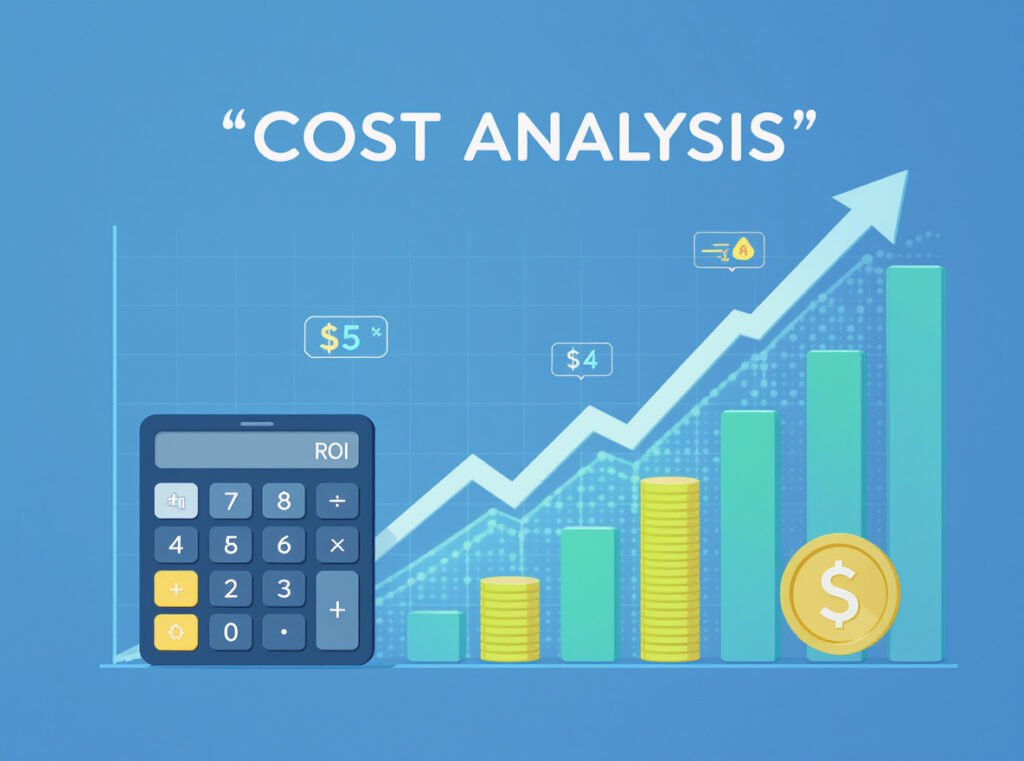
Investment Analysis
The financial benefits extend beyond simple purchase price comparisons when evaluating professional equipment investments.
Direct Cost Savings:
Self-cleaning technology reduces several expense categories over the device’s operational lifetime.
• Replacement costs – Extended lifespan reduces purchase frequency
• Maintenance expenses – Less manual cleaning and professional servicing
• Energy efficiency – Maintained airflow reduces energy consumption
• Productivity gains – Consistent performance maintains styling speed
Business Impact for Salons:
Professional establishments see additional benefits beyond direct cost savings.
| Benefit Category | Financial Impact | Business Value |
|---|---|---|
| Reduced Downtime | $100-300/month saved | Maintained service capacity |
| Consistent Results | Client retention | Long-term revenue protection |
| Equipment Reliability | Predictable costs | Better budget planning |
| Staff Efficiency | Time savings | Increased service volume |
Break-Even Analysis:
Most professional users reach break-even within 18-24 months of purchase, with significant savings thereafter.
ROI Timeline:
- Months 1-12: Initial premium cost recovery begins
- Months 13-24: Break-even point reached
- Months 25+: Pure savings and benefits realization
For high-volume users processing 50+ clients weekly, break-even typically occurs within 12-15 months due to accelerated benefits realization.
What Are the Best Self-Cleaning Hair Dryer Features?
Feature selection significantly impacts user experience and long-term satisfaction. Understanding key capabilities helps buyers make informed decisions for their specific needs.
The best self-cleaning hair dryers combine brushless DC motors operating at 100,000-110,000 RPM, dual or micro-filter systems, intelligent cleaning alerts, and professional-grade build quality. Top-performing models like the Bio Ionic SMART-X, INOVA Professional, and Gama iQ2 Perfetto demonstrate how advanced engineering delivers superior performance with minimal maintenance requirements.
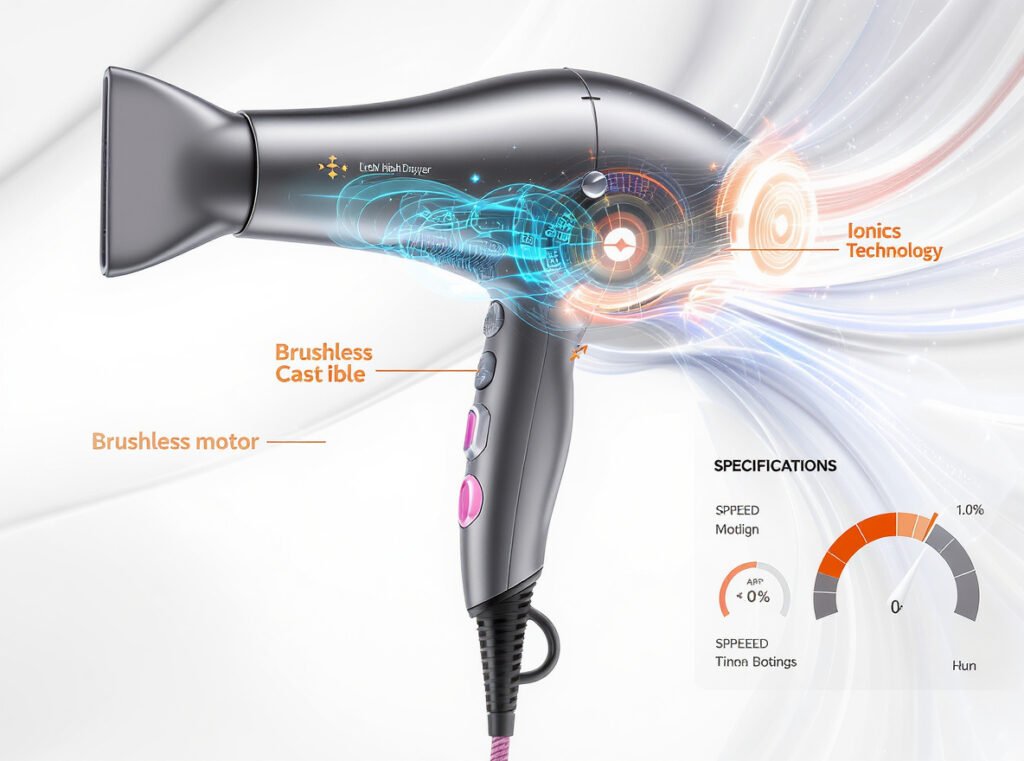
Essential Feature Categories
Modern self-cleaning hair dryers incorporate various advanced features that enhance performance and user experience.
Core Self-Cleaning Features:
The fundamental cleaning capabilities form the foundation of effective maintenance systems.
• Reverse airflow technology – Primary cleaning mechanism
• Automatic cycle timing – Prevents over-cleaning and motor strain
• Smart activation controls – User-friendly operation
• Debris ejection systems – Efficient particle removal
Performance Enhancement Features:
Advanced models include capabilities that improve styling results alongside maintenance benefits.
Motor and Airflow:
- High-speed brushless motors (100,000+ RPM)
- Variable speed controls (3+ settings)
- Consistent airflow maintenance
- Reduced noise operation
Heat Management:
- Multiple temperature settings
- Ionic technology for frizz reduction
- Even heat distribution systems
- Cool shot buttons for setting styles
| Feature Type | Basic Models | Premium Models | Professional Grade |
|---|---|---|---|
| Cleaning Activation | Manual only | Manual + Timer | Smart sensors + App |
| Motor Speed | 80,000 RPM | 100,000+ RPM | 110,000+ RPM |
| Heat Settings | 3 settings | 4+ settings | Infinite control |
| Additional Tech | Basic ionic | Advanced ionic | Multi-technology |
User Experience Features:
Modern convenience features improve daily operation and long-term satisfaction.
Smart connectivity allows remote monitoring and control through mobile applications. Customizable settings enable personalized cleaning schedules and performance optimization.
Summary
Self-cleaning hair dryer functions revolutionize equipment maintenance through automated reverse airflow technology that removes debris and extends device lifespan by 40-60%. These systems activate through simple button combinations, clean internal components every 15-30 seconds, and significantly reduce long-term ownership costs for professional and frequent personal users.
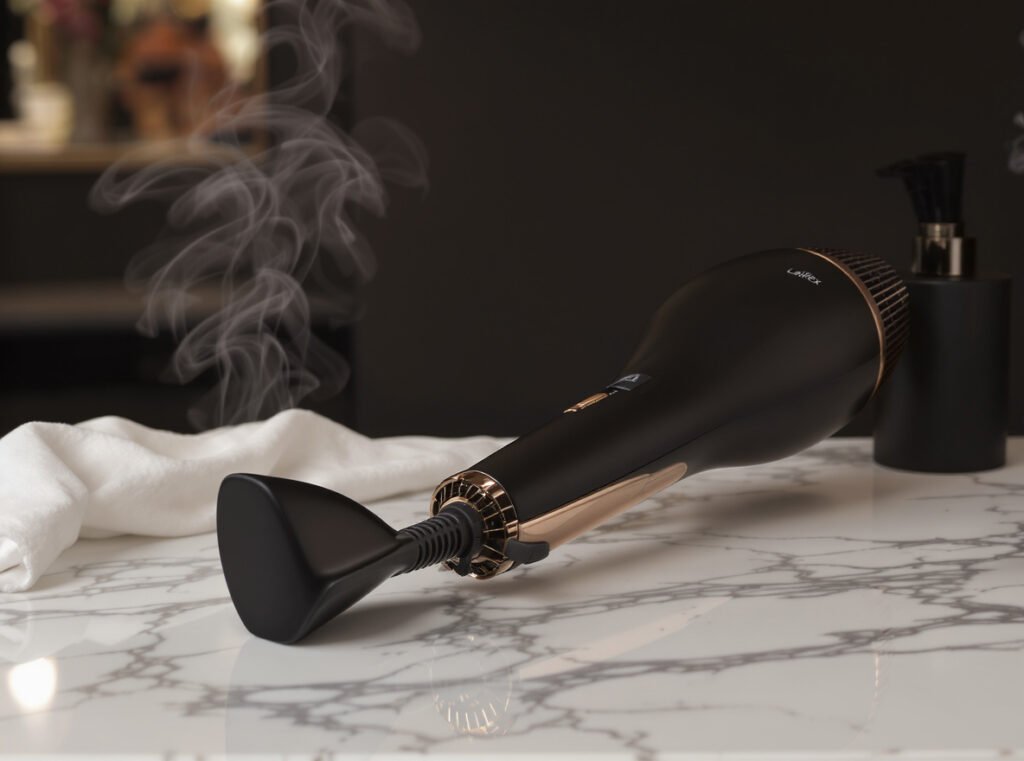
Ready to upgrade your styling equipment with cutting-edge self-cleaning technology? Explore our advanced P1C high-speed hair dryer featuring professional-grade performance and innovative maintenance systems. Contact our team today to discuss wholesale opportunities and discover how Laifex can enhance your product offerings with reliable, efficient styling tools.

